

Exploring innovations in rehabilitation and disability care
By Matt Mackay, CEO of Royal Rehab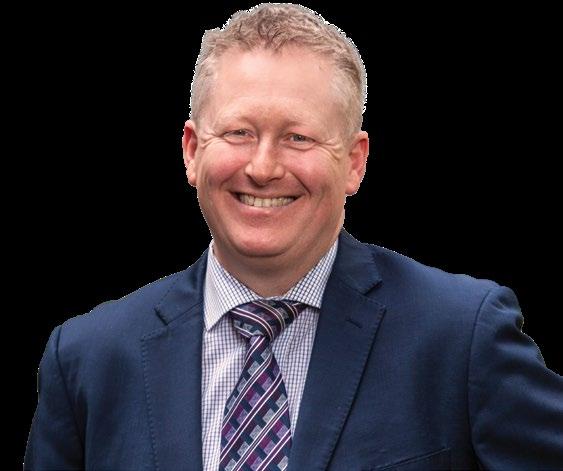
At Royal Rehab, we are dedicated to staying at the forefront of rehabilitation and disability care. In order to achieve this, we believe in embracing innovative research and utilising cutting-edge technology. Recently, I had the opportunity to attend the Annual American Congress of Rehabilitation Medicine, the the world’s premier interdisciplinary rehabilitation research conference. The conference brought together over 3,000 delegates from around the globe and highlighted some of the most exciting and promising developments in the field.
One of the major topics discussed at the conference was the use of virtual reality therapy in stroke rehabilitation. Studies have shown that this type of therapy can be incredibly effective in helping people impacted by stroke regain movement and function. The use of virtual reality environments can also be more engaging and motivating for patients, leading to better outcomes.
Precision medicine in rehabilitation was also a topic of discussion. This approach involves using highly accurate predictive models to make data-driven decisions about patient care. This can lead to more personalised treatment plans, and better outcomes for patients. The use of internal data and evidence in real-time allows clinical teams to meet patient goals, redirect care plans as needed, and manage length of stay and costs.
The conference also featured a number of tech startups working to improve patient outcomes through new technology. From telehealth initiatives to wearable devices, these companies are developing innovative solutions to enhance rehabilitation and disability care.
The application of music in neurorehabilitation was another topic that was discussed. Music therapy has been shown to be beneficial for patients with a range of neurological conditions, including stroke and traumatic brain injury. The use of music can help to improve mood, reduce anxiety, and enhance cognitive function.
One of the major challenges in rehabilitation and disability care is funding. Many rehabilitation providers struggle to secure the resources they need to provide high-quality care to patients. This can lead to shorter lengths of stay and lower patient outcomes. The conference provided an opportunity for attendees to share best practice approaches to managing costs and achieving better outcomes for patients.
During my trip, I also had the chance to visit some of America’s most innovative rehabilitation hospitals and companies. The highlight of my visit was the Icahn School of Medicine at Mt Sinai in New York, where I met with the Director of Rehabilitation Innovation, Dr David Putrino. David is an Australian ex-pat and is doing amazing things in the field of robotics, neurostimulation, and virtual reality. We are thrilled to be hosting David during his visit to Sydney in March 2023, where we will explore opportunities to develop research linkages and partnerships with the Mt Sinai health system.
I also visited Synchron, an Australian-led company based in Brooklyn that has developed an endovascular braincomputer interface for the treatment of neurological diseases. This technology is still in the trial phase, but it has the potential to revolutionise care for people with conditions such as locked-in syndrome or those who cannot use their limbs.
Finally, I visited the James J Peters Department of Veterans Affairs Medical Centre. They have a huge robotics program and are doing some incredible work in the fields of spinal cord injury, traumatic brain injury and stroke.
In conclusion, I strongly believe that fostering creative thinking and innovation is crucial in order to make progress in improving the independence and quality of life of people with disabilities, injuries, or illnesses. For organisations such as Royal Rehab, attending conferences and collaborating with esteemed organisations like Mt Sinai are essential steps in this endeavour.
Ryde Spotlight
Since launch in July 2022, Royal Rehab LifeWorks has been supporting neurorehabilitation patients in their recovery through individually tailored programs complemented by world-leading advanced technology. Robotics, virtual and augmented reality, zero gravity support and real-time bio-feedback are complementing traditional therapy, and helping to deliver great results through focused, and motivating stimulation, with the aim of achieving greater functional independence and quality of life.
This investment in advanced technology places Royal Rehab amongst a global cohort of leaders within the fields of rehabilitation and disability. This was confirmed during a recent visit to Zurich by Royal Rehab Ryde’s General Manager, Selina Rowe, who visited leading rehabilitation hospitals and attended the Hocoma Academy Conference, where clinicians from 17 countries were in attendance. Selina saw firsthand how technology is being used in the rehabilitation field and was proud to discover that Royal Rehab’s Advanced Technology Centre with its mix of highly advanced devices within a patient-centred, multidisciplinary therapy model positions us internationally alongside other leaders in the technology and rehabilitation field.
If you would like to discuss a patient or would like more information about the advanced technology or therapy services at Royal Rehab LifeWorks please call us on 1800 518 180.
Case Study: Using technology to aid recovery from stroke
In June 2022, 66-year-old farmer and retired businessman Richard, was admitted to Royal Prince Alfred Hospital for a gastric-related illness. However, during his stay, he developed pneumonia and suffered a Non ST Elevated Myocardial Infarction (NSTEMI) and a Left Middle Cerebral Artery (L MCA) Stroke. The stroke left Richard with limited movement in his right leg, arm, and hand. Despite slowly regaining his ability to walk in the hospital, he still had no movement in his arm and hand when he arrived at Royal Rehab Private Ryde, in July.
At Royal Rehab, Richard underwent a month of private inpatient rehabilitation followed by four months of day rehab. His therapy included a rigorous exercise program including, hydrotherapy, and advanced technology at Royal Rehab’s Advanced Technology Centre. Royal Rehab Occupational Therapist Emma notes that the use of technology was crucial in Richard’s recovery, as it allowed for detection of small changes in motion and provided engaging and motivating activities.
Specific devices such as the Tyromotion suite, Pablo force detector, Diego body weight support harness, and Armeo Power robotic exoskeleton were used to improve Richard’s wrist movement, shoulder and elbow strength, and grip strength.
Emma emphasises the importance of repetition in stroke recovery and the role of technology in keeping patients engaged.
“Repetition is critical in stroke recovery – we know this from the Stroke guidelines - but people can find the repetition of traditional therapy less engaging, so the use of technology helps us to help keep people focused and motivated,” says Emma.
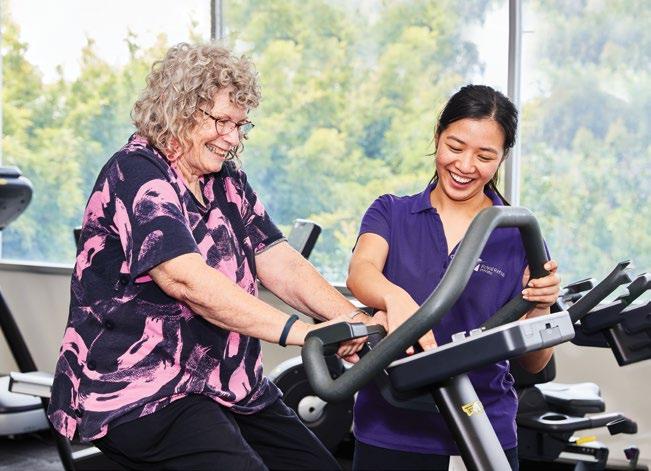
Richard describes his time at the Advanced Technology Centre as a “stand-out,” and credits it for the improvement in his hand function. In particular he found that the Amadeo device, which was used to improve finger-based stretching and opening of his fingers and hand, was particularly motivating.
“The games get harder and faster, and you have to react quicker. I found that absolutely marvelous for getting my hand to move. You can see each week how you are progressing in a graphical form. It’s very motivational because you can see progress. And that keeps you going,” says Richard.
By the end of his rehab program, Richard had made significant progress, scoring four out of five on all joints in terms of power and having a grip strength of 9.8kgs, up from zero on admission. Now back on the farm, Richard has successfully re-sat his driving test and is able to ride his quad bike to round up cattle. He continues his rehabilitation at a hydrotherapy pool and gym closer to home and expresses his gratitude for the expert care he received at Royal Rehab Private Ryde.
What’s new at Petersham
New name, same unwavering commitment to quality
On February 6th, 2023, MetroRehab Hospital rebranded as Royal Rehab Private Petersham. This change comes as a result of a merger between MetroRehab and Royal Rehab in 2019 and is a significant step towards aligning the staff, operations, vision, and strategy of both organisations.
While the name may be different, our commitment to providing the highest quality care and service to our patients, clients and referrers remains unchanged. We hope this new name will provide a clearer understanding of the breadth of services we offer, and we look forward to continuing to serve the community under our new moniker.
Introducing the Royal Rehab Private Petersham, General Manager and Director of Clinical Services
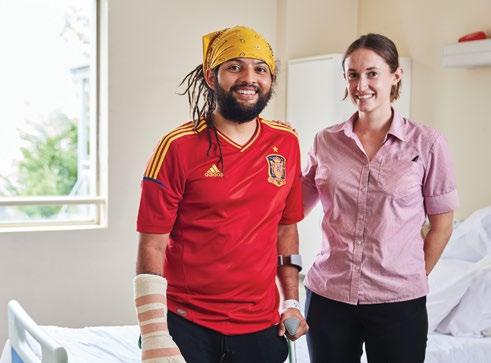
Introducing Dr. Sarmast, Consultant Rehabilitation Specialist
Dr. Fatemeh Sarmast is a highly accomplished and welcome addition to our team of Rehabilitation Specialists. Fluent in both Farsi and English Dr. Sarmast obtained her Medical Doctorate in her hometown of Tehran where she was born and raised, and has been working as a medical doctor in Australia since 2012.

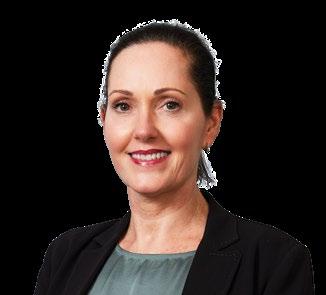
Dr. Sarmast earned her fellowship in Adult Rehabilitation Medicine from the Australian Faculty of Rehabilitation Medicine (FAFRM) in 2020, and has been working as a consultant physician ever since. Her areas of expertise include chronic pain management, spasticity management, and minimally invasive neuro/musculoskeletal procedures.
From the entire Royal Rehab team we would like to say how pleased we are to have Fatemeh on board.
Petersham Allied Health Services
To meet the increasing demand for high quality allied health services in the Petersham area we are proud to introduce Petersham Allied Health Services, a new clinic offering in our portfolio.
Disciplines offered include:
• Physiotherapy
• Dietetics
Areas of focus include:
• Neurological rehab
• Pre-orthopaedic surgery
• Post orthopaedic surgery
• Osteoarthritis management
Funding options include:
• Self-funding
• Occupational Therapy
• Exercise Physiology
• Back pain
• Active ageing
• Falls prevention
• Department of Veterans’ Affairs
• Speech Pathology
• Chronic disease management
If your patients require allied health services, they can contact us on (02) 8585 4900 to book an appointment.
We would like to extend a very warm welcome to Michelle McDonnell, Royal Rehab Private Petersham’s new General Manager and Director of Clinical Services.
Michelle joined the team at Royal Rehab in August 2022, bringing with her over 20 years of experience in the healthcare industry. Much of that time was spent working at Ramsay Healthcare, where she held various positions across multiple specialties, including Medical, Surgical and standalone Day Surgery. Michelle also served as a Director of Clinical Services overseeing two hospitals that specialised in Rehabilitation and Pain Management. Before moving to Sydney in 2001, Michelle worked in the NHS in the United Kingdom.
Michelle McDonnell, General Manager / Director of Clinical Services, Royal Rehab Private PetershamPatient Story: Steve’s journey of hope and determination
Steve, a Town Planner, had a typical Sunday night preparing for the start of another busy working week. However, his plans were abruptly interrupted when he suddenly found himself on the floor, unable to feel his left foot and arm, with his face drooping and speech garbled. Steve says, “I didn’t understand what was happening. I wasn’t even aware of what a stroke was.”
Luckily, Steve’s wife Ange, recognising the signs of stroke, immediately called an ambulance. Steve was rushed to Royal Prince Alfred Hospital, where scans revealed a bleed on the brain and dangerously high blood pressure. He spent a month at the hospital, where a coordinator from Royal Rehab Private Petersham (known as MetroRehab at the time) visited him to discuss his rehab options. Steve says that his wife and he chose Royal Rehab Private Petersham for its intensive physiotherapy program and in late March, Steve began his rehab journey as an inpatient.
During his stay at the hospital, Steve underwent occupational therapy, speech therapy, and intensive physiotherapy seven days a week. Through this, he was able to regain movement and eventually walk with assistance.
By late August, Steve was ready to return home. Social Worker Aimee developed a discharge plan, helped Steve apply for NDIS funding so he could access the necessary at-home support, including a daily visit from a support worker and athome physiotherapy, and assessed Steve’s home for safety, so the team could recommend necessary home modifications and equipment.
Steve is now able to walk with an aid, only using one for safety and overall, he is feeling good. He returns to Royal Rehab Private Petersham twice a week for day rehabilitation and receives a weekly visit from a physiotherapist at home.
Of his experience at Royal Rehab Private Petersham Steve says, “The physios, occupational therapists, and speech pathologists ended up being like a family to me, and the nurses were amazing….they were so positive, so energetic, so professional. I look forward to seeing them each week. They really support me.“
He adds that his stroke experience has been an ‘eye-opener.’ “Sometimes I feel as if I have been to hell and back – not just the physical challenges, but also the mental strain.”
Also grateful for the emotional support he received at Royal Rehab Private Petersham, Steve says, “they understand both the physical and mental impacts of stroke on people’s lives and how they feel.”
Social worker Aimee agrees that a stroke’s impacts are as much psychological as they are physical. She says that part of the role she played in Steve’s recovery was to “normalise where he was at, be an advocate, and provide him with regular counselling to help him adjust.”
Steve’s goal is to be able to drive and return to work in early March 2023. He is also determined to be able to walk without an aid completely. When speaking about his goals, Steve says, “I will get there.
“Everyone is friendly, and it’s a very caring place - they care about each other and all work together. It’s one of the things that I saw; they want to be there helping people, it’s not like a job to them, and they really take it seriously.”
Case Study: Multidisciplinary rehab in a 30 year old mother with facioscapulohumeral muscular dystrophy (FSHD)
Dr Anuka R. Parapuram MB Bch FAFRM (RACP)
FSHD, or facioscapulohumeral muscular dystrophy, is a type of muscular dystrophy that affects muscle strength and function in the face, shoulders, and upper arms. It is the most common form of muscular dystrophy, and it can affect individuals of all ages and genders. The disease is caused by a genetic mutation that is inherited in an autosomal dominant pattern, which means that if one parent has the condition, there is a 50% chance that each of their children will inherit it.
The symptoms of FSHD can vary greatly from person to person, but the disease is named after the typical pattern of weakness at onset - face, shoulder girdle and upper arms. Weakness with FSHD is often asymmetric and progresses slowly and often involves legs and trunk as it progresses. The most common initial symptom is difficulty reaching above shoulder level. Other symptoms include facial weakness affecting articulation and ability to smile, abdominal weakness leading to back ache and fatigue, foot drop requiring ankle foot orthoses, pelvic girdle weakness affecting transfers and stair mobility, nonmuscular impairments such as retinal abnormalities and high-frequency bilateral sensorineural healing loss may be associated with FSHD.
Secondary complications include chronic pain which can affect up to 90% of individuals with a major impact on quality of life. Fatigue can be seen in 60-90% of FSHD patients and loss of balance resulting in increased risk of falls.
Individuals with FSHD can have significant functional limitations and benefit from being under the care of a multidisciplinary team. The goals of treatment are to prevent or delay secondary complications, maximise functional abilities and improve or maintain quality of life. Programs should be individualised and adjusted as the disease progresses. Exercise including flexibility, stretching, strengthening, range of motion and cardiovascular aerobic training is important in managing the musculoskeletal manifestations of the disease. Hydrotherapy is often a well-tolerated and effective way to strengthen muscles and increase endurance. Functional Electrical Stimulation (FES) has been shown to be safe and well-tolerated and can be used to prevent disuse atrophy.
Case Study
Thirty-year-old Priscillia was referred to Royal Rehab Private Petersham (then known as MetroRehab Hospital) in May 2022 by her neurologist for assessment for an outpatient rehab program. She had a 10-year history of complaining of scapula and chronic neck pain, but was only diagnosed with FSHD in December 2021. Her function was affected and included difficulty with overhead activities such as washing her hair, brushing her teeth, hanging out the washing and being able to care for her 18-month-old son. Her mobility and balance were also affected, with pain limiting her walking tolerance.
Priscillia had been working as an accountant but was struggling to manage her full-time position. She has a supportive partner who is helping her cope with the new diagnosis.
As Priscillia’s health fund initially didn’t cover the day program, she attended the self-funded Hydrotherapy class. She was also referred to Royal Prince Alfred Physiotherapy. In August 2022 - she was able to use her health fund to attend the multidisciplinary day program for Occupational Therapy and Hydrotherapy for an intense weekly program with attendance twice a week.
Occupational Therapy focused on upper limb strengthening, FES, range of movement, and functional activities of daily living retraining. With Hydrotherapy, Priscillia found improvement in her endurance and a reduction in pain. An unfortunate setback to the program during COVID lockdowns and work commitments resulted in missing a few weeks of therapy, however, this has solidified the importance of maintaining an ongoing exercise program.
Priscillia shared her experience with Royal Rehab Private Petersham’s multidisciplinary rehab program, stating, “I had been struggling with pain and weakness for years, but I had no idea what was causing it. Once I got the diagnosis, I was referred to MetroRehab. They tailored the program to my specific needs. Hydrotherapy was particularly beneficial, as there’s movement that I can do in the water that I can’t do elsewhere. It has helped me improve my overall strength and fitness. I also find the Occupational Therapy really useful – as it is helping me to become more aware of my posture when I am undertaking daily activities.”
As FSHD is so rare, Priscillia is the first patient the team at Royal Rehab Private Petersham has treated with the condition and they have seen the positive role of multidisciplinary rehab. It has been beneficial for Priscillia to access therapy at Royal Rehab Private Petersham via selffunded programs, the day program via her health fund, and as her disease progresses, through NDIS funding. It is crucial for individuals with FSHD to have access to a multidisciplinary team that can help them manage their condition, prevent secondary complications, and improve their quality of life.
In conclusion, FSHD is a rare and debilitating condition and a multidisciplinary rehabilitation approach is the best way to manage this condition, prevent secondary complications, and improve quality of life. The team at Royal Rehab Private Petersham, have been able to demonstrate the positive impact of such an approach in the case of Priscillia, who found improvement in her endurance and a reduction in pain.
Spotlight on our health professionals
Candice Natividad Registered Nurse

Meet Candice Natividad, a registered nurse at Royal Rehab Private Ryde who has been providing individualised care to patients recovering from injury and illnesses for the past five years. With her Bachelor of Nursing degree from Western Sydney University, she is dedicated to creating a judgementfree, inclusive, and patient-centered environment - and making the care process fun for her patients! Her inspiration comes from the therapeutic relationships she builds with her clients and the progress they make upon discharge.
Kishan Bandi Registered Nurse
Meet Kishan Bandi, a highly experienced registered nurse who has been working at Royal Rehab Private Ryde for the past 10 years. With his Bachelor of Nursing degree from Western Sydney University, he believes in advocating, challenging, and inspiring patients, as well as empowering them and their families as part of a holistic approach to care. He takes great pride in witnessing the progress of his patients and being part of the team at Royal Rehab - which he describes as being focused on delivering high-quality care.

Alessia Apostolopoulos Physiotherapist
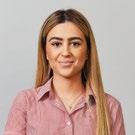
Meet Alessia Apostolopoulos, the Day Program Senior Physiotherapist at Royal Rehab Private Petersham. With her Bachelor of Exercise and Sport Science and Master of Physiotherapy (2019) from the University of Technology Sydney, she has been working across inpatient and outpatient settings treating a variety of patients, including those with neurological and orthopaedic conditions. Alessia enjoys collaborating with the multidisciplinary team at Royal Rehab Private Petersham to empower and assist patients in achieving their goals.
Carla Colagrossi Exercise PhysiologistMeet Carla Colagrossi, an Accredited Exercise Physiologist at Royal Rehab Private Petersham. With her Bachelor of Exercise and Sports Science and Master of Clinical Exercise Physiology (2018) - both from the Australian Catholic University – Carla has been working within a rehab hospital setting for the past four years - including two years in her current role at Royal Rehab Private Petersham. During this time Carla has developed an intimate knowledge of Parkinson’s Disease and is a qualified PD Warrior Instructor. She finds that it’s the little things that count – and she enjoys celebrating each small win that her patients make, and educating patients about how to make exercise a part of their day.
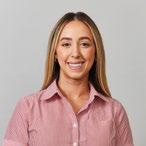
Royal Rehab Ryde
235 Morrison Road, Ryde NSW 2112
P (02) 9808 9222 F (02) 9809 6071
E info@royalrehab.com.au
royalrehab.com.au
Royal Rehab LifeWorks
235 Morrison Road, Ryde NSW 2112
P 1800 518 180
E royalrehablifeworks@royalrehab.com.au
royalrehablifeworks.com.au
Royal Rehab Private Petersham
275 Addison Road, Petersham NSW 2049
P (02) 8585 4900 F (02) 9564 3064
E petersham@royalrehab.com.au
royalrehab-petersham.com.au
